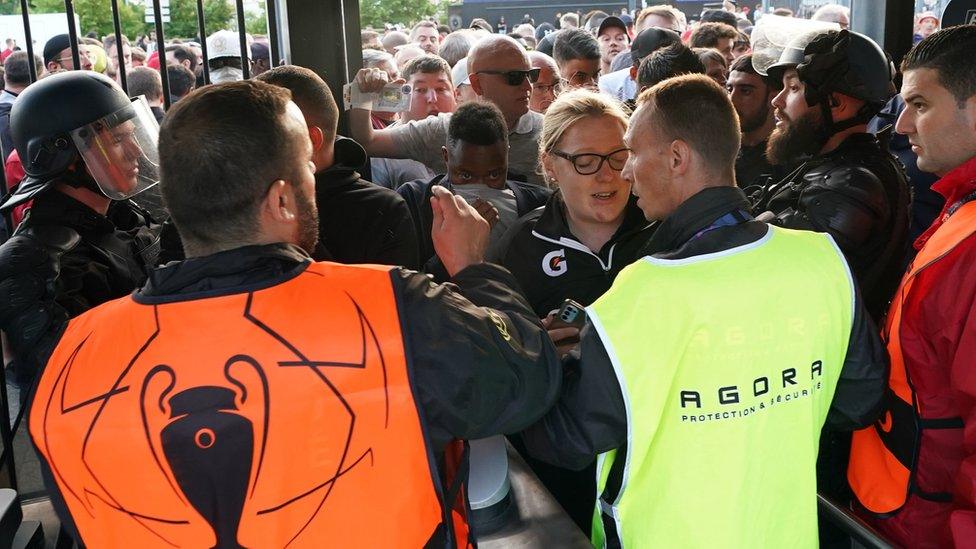Uefa's organisation of Champions League final a failure, panel finds
- Published
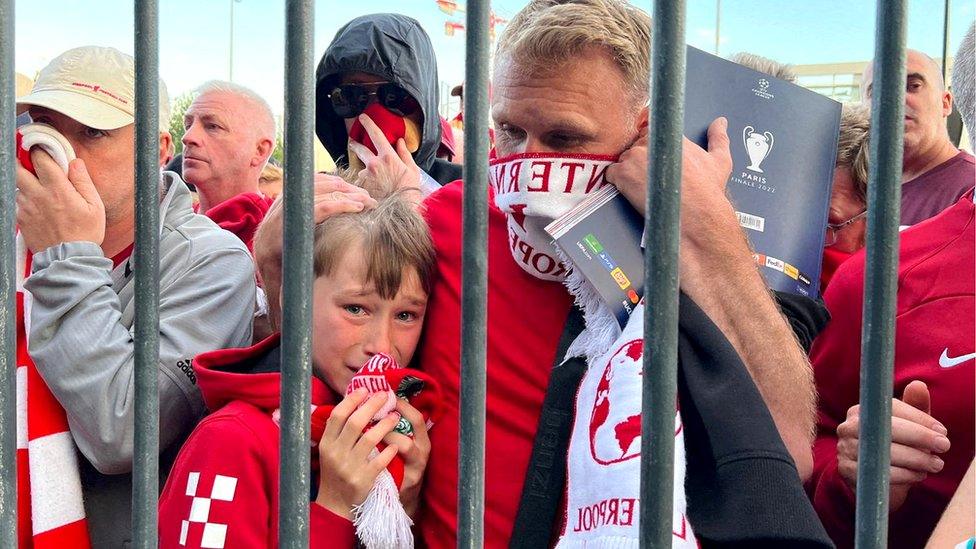
Fans were forced to cover their faces to escape the effects of tear gas as they queued to get into the final
The organisation of May's Champions League final by European football's ruling body Uefa was "an abject failure", a panel of experts has said.
Fans were robbed and tear-gassed outside Liverpool and Real Madrid's game at Paris's Stade de France and kick-off was delayed by 36 minutes.
Organisers initially blamed fake tickets and supporters, but their claims drew widespread criticism.
Uefa said it would not comment until its own inquiry concludes in November.
Experts told BBC Panorama that fans' calm response was the main reason why overcrowding outside the stadium had not resulted in fatalities.
More than 480 testimonies by supporters and journalists at the 28 May final were examined by an independent panel, which included Prof Phil Scraton, who previously led a report into the 1989 Hillsborough stadium disaster.
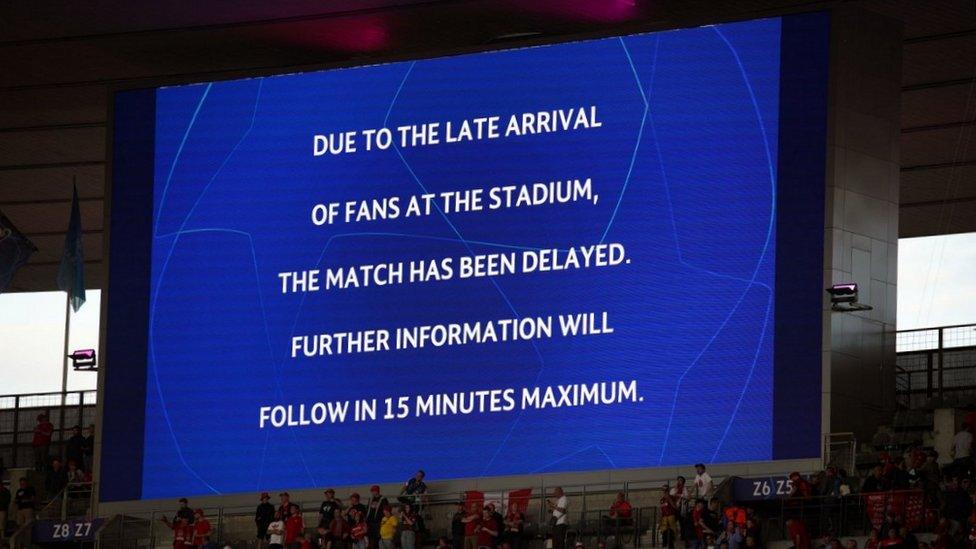
Big screens inside the Stade de France claimed that the delayed start was caused by the late arrival of fans
The panel said fans were "held for several hours in a bottleneck" near the stadium, before finding themselves "again in static queues at malfunctioning turnstiles".
"On leaving the stadium, they were attacked at knife-point by gangs who stole their possessions," they added.
Their report found there had been:
inadequate pre-match preparation by Uefa and the Paris agencies
aggressive policing
inadequate provision for crowd safety and event management
unprovoked assaults on fans by the police and local gangs
The panel added that there had been an "abject failure by Uefa in meeting its responsibilities".
The Paris police did not respond to a request for comment from BBC Panorama, but have previously said they regret using tear gas against vulnerable people or those who did not cause trouble.
They have also said they regret the failures outside the stadium after the match.
Uefa issued an apology to both Liverpool and Real Madrid fans in June and has commissioned its own independent review into the event.
'Couldn't breathe'
The report said that before the game, about 15,000 Liverpool supporters were caught in a bottleneck near an underpass, after a decision to take down signage meant fans were only directed down one route to the stadium.
The panel found that as the build-up outside the Stade de France became increasingly dangerous, a ticket checkpoint was removed, releasing fans on to the concourse, but event organisers had shut some stadium gates to control the situation, which had been exacerbated by hundreds of local people trying to enter without tickets.
French authorities used tear gas, with children, elderly and disabled people caught up in the chaos, and riot police were deployed, despite Merseyside Police's pre-match intelligence report stating that Liverpool fans were well-behaved in Europe and did not appreciate the use of heavy-handed policing.
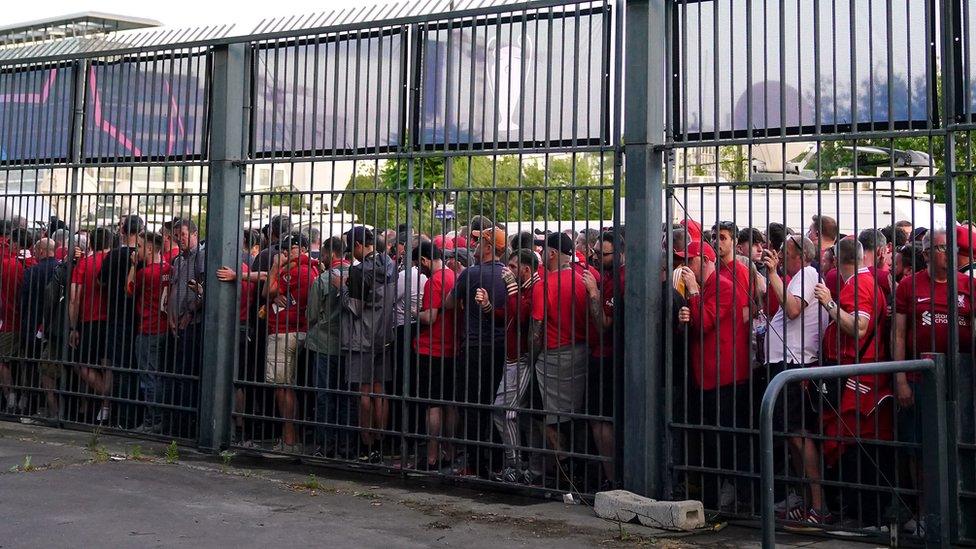
The panel said only the calm response of queuing fans prevented any fatalities
BBC Panorama analysed more than 300 videos recorded by fans, which showed thousands of supporters in tightly-packed crowds outside the stadium encouraging each other to stay calm and to back up.
Maxwell Pearce, aged 11, said he thought he was "going to die" after being tear-gassed and described how others encouraged him to get on the ground and hold his scarf over his face so he could breathe.
Grace Merritt, aged 19, said she felt like she "couldn't breathe because my ribs were in so much pain and I was thinking: 'Oh my god, anything could crack here, anything could be broken'."
The fan, who was at the game with her younger brother, received hospital treatment when she returned to Liverpool.
Dan Austin, who was caught in the underpass bottleneck, said awareness of the 1989 Hillsborough disaster, where a stadium crush led to the deaths of 97 Liverpool fans, "meant that everybody knew what to do".
He added that Liverpool supporters had "been through that before and… everybody, even people like me who were not alive at the time when it happened, has that kind of collective and local memory of what happened instilled in you from growing up".
In July, a French inquiry found the chaos was caused by administrative errors and that authorities had blamed Liverpool fans unfairly.
Prof Scraton said there had been serious failings by the event's organisers Uefa, adding that the organisation had the "overarching responsibility to get it right [and to] care for those people who are putting their hands in their pockets and coming into those matches".

Layla Wright's Panorama investigation, The Champions League Final: What Went Wrong?, is on BBC One and BBC iPlayer at 20:00 BST.


Why not follow BBC North West on Facebook, external, Twitter, external and Instagram, external? You can also send story ideas to northwest.newsonline@bbc.co.uk, external
Related topics
- Published23 September 2022
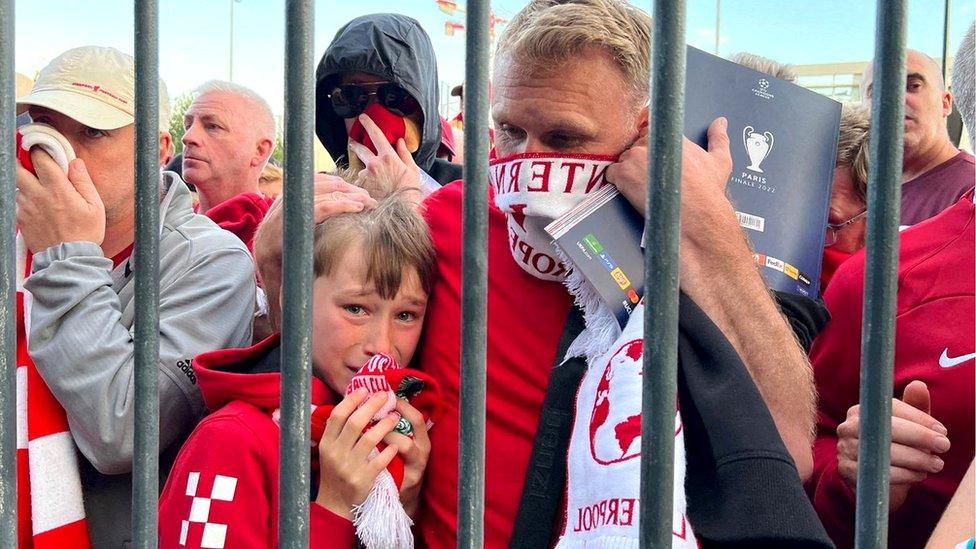
- Published12 July 2022
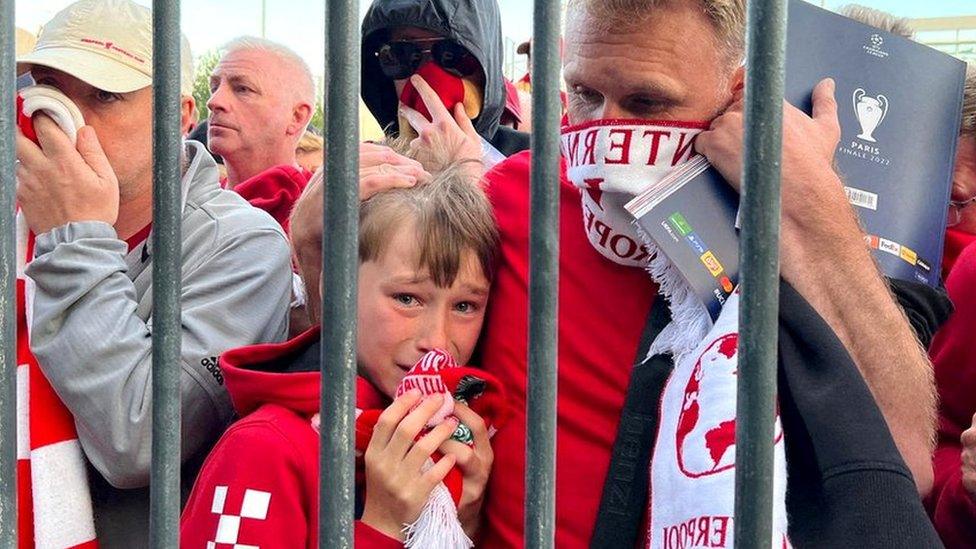
- Published10 June 2022
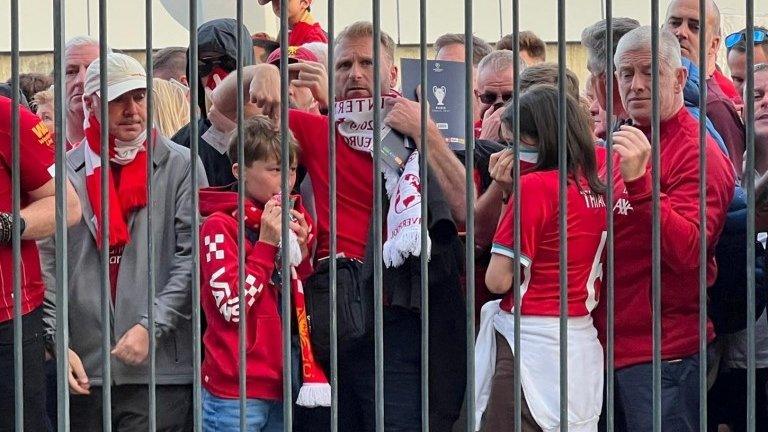
- Attribution
- Published10 June 2022
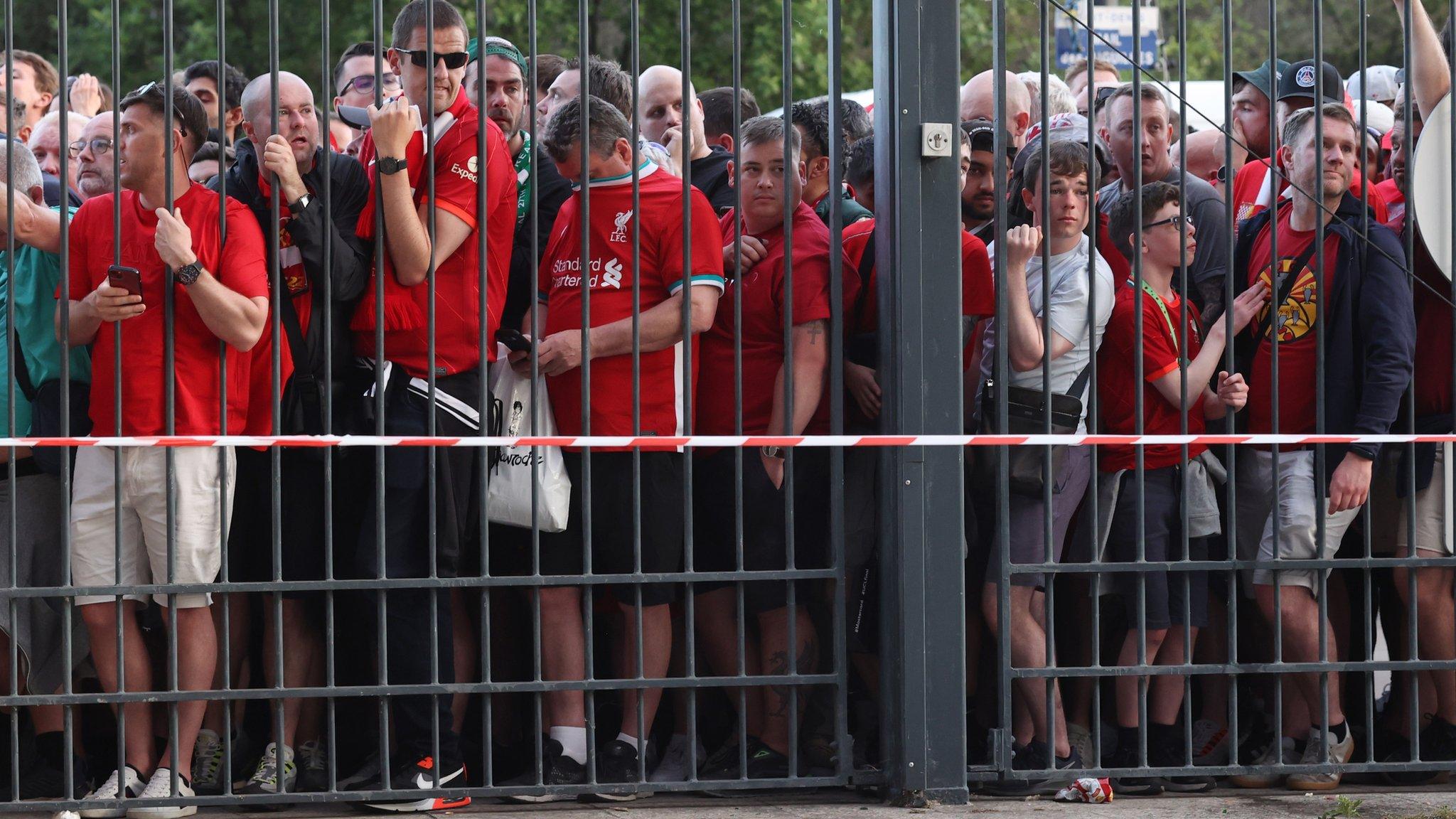
- Attribution
- Published3 June 2022
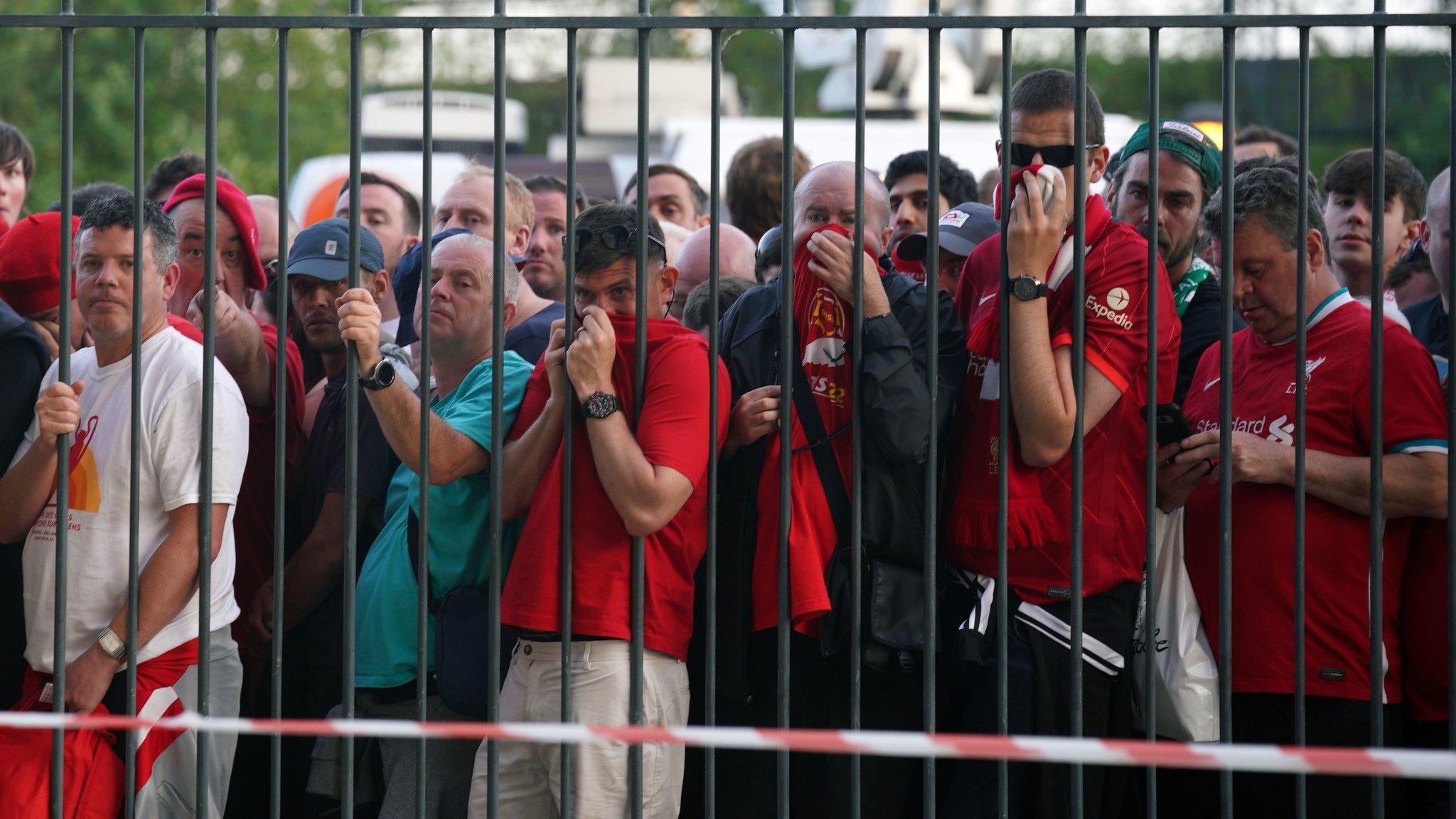
- Attribution
- Published3 June 2022
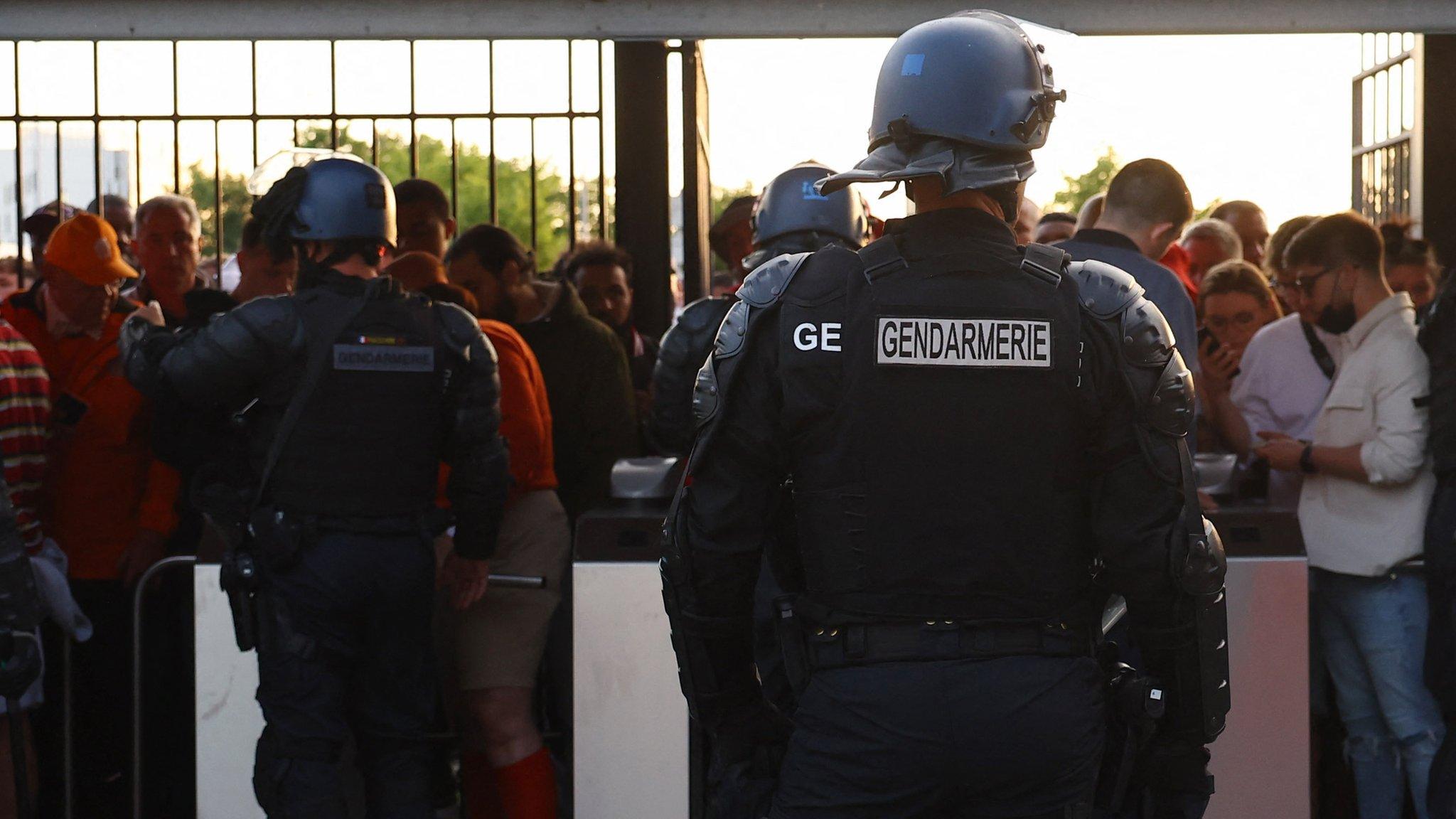
- Published29 May 2022
